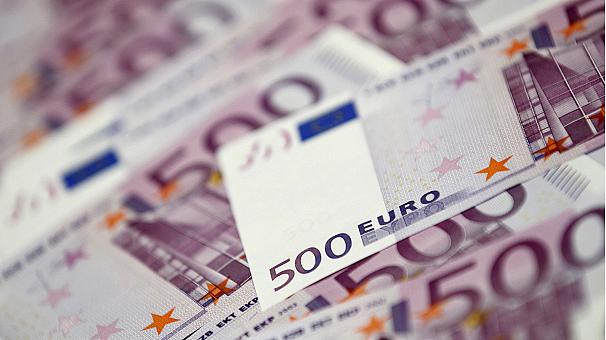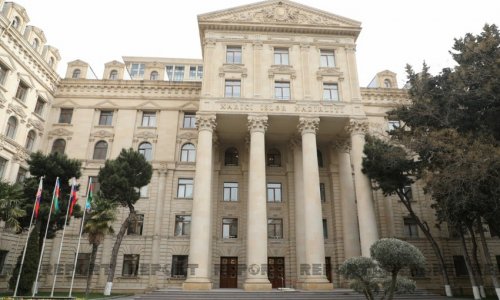Spain’s standing in a global corruption index has fallen the heaviest of all EU states, according to Euronews analysis of official data.
Experts say Madrid’s 10 percent plunge (to 58 points) in Transparency International’s (TI) Corruption Perceptions Index over the last four years is linked to the financial crisis and subsequent austerity measures.
The index ranks countries out of 100; the lower the score the higher the impression of public sector corruption.
Yet Greece, also hit hard by the financial crisis, saw its standing improve by nearly 30 percent, albeit from a low starting point.
Scandinavia again dominated the upper echelons of EU standings despite some high-profile corruption scandals.
Hungary meanwhile bucked a generally improving trend in central and eastern Europe.
The EU and western Europe region had the best average score (67) globally, with sub-Saharan Africa the lowest with 33.
TI says its index is the most widely-used global corruption indicator and that it is composed using a "combination of surveys and assessments of corruption, collected by a variety of reputable institutions”.
Spain’s slide
Spain has slipped 10.77 percent in its score, according to Euronews analysis, dropping from 65 points in 2012 to 58 last year.
"I don’t think it’s a surprise to anyone that there’s been a number of revelations about corruption in Spain since the banking and financial crisis hit the country three or four years ago,” Carl Dolan, director of TI’s EU office told Euronews. "I think what is interesting about those revelations is that it shows how systemic and how all aspects of governance in Spain has been hit by these scandals.
"The figures are there in black and white, it’s a fairly dramatic decline for a country that routinely was in the top 20 of the corruption index before the financial crisis.”
Examples include: the arrest on Tuesday, January 26, of ten people in the Spanish region of Valencia, including the former president of the People’s Party, amid a probe into an alleged corruption network; and the alleged scandal around former People’s Party treasurer Luis Bárcenas, who is accused of making secret cash payments to senior party figures, using a fund of donations from businesses.
Good on Greece?
Greece has been the most improved EU state, leaping 27.78 points. It jumped from 36 in 2012 to 46 last year.
This would suggest the financial crisis has not had the same negative effect it has seemingly had in Spain.
Mr Dolan said: "I think we should put this in context. Greece is routinely the worst-performing EU member state in our Corruption Perceptions Index.
"So this is of course good news that it is improving, but it’s from a very low base and there’s still a long way to go.
"In contrast to Spain what we’re seeing in Greece is serious attempts by the parties there to get to grips with the corruption problem. There’s been lots of investigations into corruption, particularly in the defence sector.”
Hungary bucks improving trend in central and eastern Europe
"We’re seeing a number of countries in the central European region doing better, again from a low base.
"There are improvements: the Czech Republic, Slovakia.
"But Hungary does seem to be bucking the trend. What you’re seeing in Hungary is that the independent institutions of the state, like the media, like the courts, have been brought under the control of one political party.
"The way the Hungarian government has gone about capturing these institutions that should be independent is very troubling.”
Will Poland go the same way as Hungary, given recent turmoil?
"Poland has done very well, since joining the EU, and the last three years it’s made slow, steady improvements. But all that can change if there is not the political will. If governments or political parties go down the path of Hungary – trying to exert a lot of pressure and control over independent institutions – then it’s very possible it could slide back.”
Shining Scandinavia?
Scandinavia comes out top on a lot of Europe rankings and TI’s corruption index is no different.
Denmark, Finland and Sweden made up the top three with Norway not far behind.
Yet TI claims there have been corruption scandals in all four last year: corporate bribery in Denmark, bribery involving Bergen’s mayor, a Sweden firm caught up in bribery allegations in Uzbekistan and the ongoing trial of the former head of Helsinki’s police anti-drug squad, charged with running a drug cartel of his own.
"We’re not saying any of these countries are corruption free,” said Mr Dolan. "They do very well, they have very good systems of governance and instances of petty bribery are very rare.”
Put those EU aspirations on hold?
We also looked at countries on the fringes of the EU, with ambitions to join.
Ukraine, with 27 points, was one of the worst performers in the Europe and Central Asia region.
Albania (36), Serbia (40), Montenegro (44), FYR Macedonia (42) and Turkey (42) all registered scores of under 50.
"If the EU is concerned about corruption then there’s a long way to go [for these countries],” said Mr Dolan. "But a worrying trend recently is that realpolitik has come to trump considerations about human rights and governments’ anti-corruption record.
"We’ve seen this in recent negotiations between the EU and Turkey. In return for co-operation on the migration crisis certain aspects of governance, certain aspects of the quality of institutions will be overlooked. If that is the case I think it’s bad news for the EU and bad news for the whole neighbourhood.”
Corruption perception rankings 2012-2015
You can sort the table by any of the columns, just click the header.
| Country | 2015 | 2014 | 2013 | 2012 | % change 2012-2015 |
|---|---|---|---|---|---|
| Turkey | 42 | 45 | 50 | 49 | -14.29% |
| Spain | 58 | 60 | 59 | 65 | -10.77% |
| Bosnia and Herzegovina | 38 | 39 | 42 | 42 | -9.52% |
| Moldova | 33 | 35 | 35 | 36 | -8.33% |
| Cyprus | 61 | 63 | 63 | 66 | -7.58% |
| Hungary | 51 | 54 | 54 | 55 | -7.27% |
| Iceland | 79 | 79 | 78 | 82 | -3.66% |
| Kosovo | 33 | 33 | 33 | 34 | -2.94% |
| The FYR of Macedonia | 42 | 45 | 44 | 43 | -2.33% |
| Malta | 56 | 55 | 56 | 57 | -1.75% |
| Slovenia | 60 | 58 | 57 | 61 | -1.64% |
| France | 70 | 69 | 71 | 71 | -1.41% |
| Finland | 90 | 89 | 89 | 90 | 0.00% |
| Switzerland | 86 | 86 | 85 | 86 | 0.00% |
| Portugal | 63 | 63 | 62 | 63 | 0.00% |
| Bulgaria | 41 | 43 | 41 | 41 | 0.00% |
| Georgia | 52 | 52 | 49 | 52 | 0.00% |
| Kazakhstan | 28 | 29 | 26 | 28 | 0.00% |
| Denmark | 91 | 92 | 91 | 90 | 1.11% |
| Sweden | 89 | 87 | 89 | 88 | 1.14% |
| Luxembourg | 81 | 82 | 80 | 80 | 1.25% |
| Norway | 87 | 86 | 86 | 85 | 2.35% |
| Germany | 81 | 79 | 78 | 79 | 2.53% |
| Serbia | 40 | 41 | 42 | 39 | 2.56% |
| Belgium | 77 | 76 | 75 | 75 | 2.67% |
| Armenia | 35 | 37 | 36 | 34 | 2.94% |
| Belarus | 32 | 31 | 29 | 31 | 3.23% |
| Netherlands | 87 | 83 | 83 | 84 | 3.57% |
| Russia | 29 | 27 | 28 | 28 | 3.57% |
| Ukraine | 27 | 26 | 25 | 26 | 3.85% |
| Romania | 46 | 43 | 43 | 44 | 4.55% |
| Italy | 44 | 43 | 43 | 42 | 4.76% |
| Turkmenistan | 18 | 17 | 17 | 17 | 5.88% |
| Poland | 62 | 61 | 60 | 58 | 6.90% |
| Montenegro | 44 | 42 | 44 | 41 | 7.32% |
| Azerbaijan | 29 | 29 | 28 | 27 | 7.41% |
| Ireland | 75 | 74 | 72 | 69 | 8.70% |
| Albania | 36 | 33 | 31 | 33 | 9.09% |
| Estonia | 70 | 69 | 68 | 64 | 9.38% |
| United Kingdom | 81 | 78 | 76 | 74 | 9.46% |
| Austria | 76 | 72 | 69 | 69 | 10.14% |
| Croatia | 51 | 48 | 48 | 46 | 10.87% |
| Slovakia | 51 | 50 | 47 | 46 | 10.87% |
| Uzbekistan | 19 | 18 | 17 | 17 | 11.76% |
| Latvia | 55 | 55 | 53 | 49 | 12.24% |
| Lithuania | 61 | 58 | 57 | 54 | 12.96% |
| Czech Republic | 56 | 51 | 48 | 49 | 14.29% |
| Kyrgyzstan | 28 | 27 | 24 | 24 | 16.67% |
| Tajikistan | 26 | 23 | 22 | 22 | 18.18% |
| Greece | 46 | 43 | 40 | 36 | 27.78% |
www.ann.az
Follow us !











